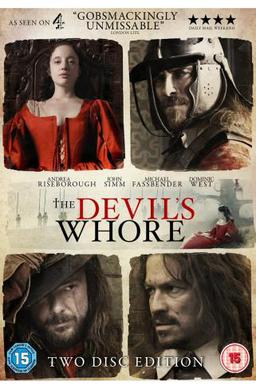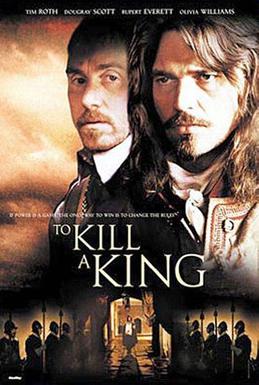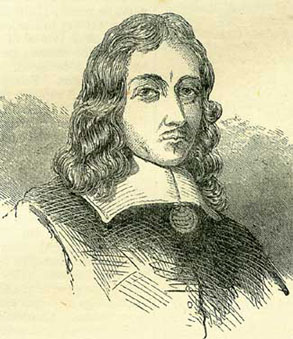The Protectorate is important in other ways. It was a British, not an English, regime, uniting England, Wales, Scotland and Ireland under a single system of government and, for the first time, giving all the component nations seats in a single, new, elected British parliament. It was also the first (and, to date, only) government in this country to be established and to operate under the terms of a detailed written constitution, which set out the composition and powers of the government. The constitution established an assured succession of elected, single-chamber parliaments, exercising extensive though not unlimited legislative powers, and set up a permanent, largely independent council, exercising extensive though not unlimited executive powers. It provided for a large and potent army and navy and guaranteed extensive religious liberty for most Protestant faiths.
new, elected British parliament. It was also the first (and, to date, only) government in this country to be established and to operate under the terms of a detailed written constitution, which set out the composition and powers of the government. The constitution established an assured succession of elected, single-chamber parliaments, exercising extensive though not unlimited legislative powers, and set up a permanent, largely independent council, exercising extensive though not unlimited executive powers. It provided for a large and potent army and navy and guaranteed extensive religious liberty for most Protestant faiths. 
The constitution also appointed a single head of state, who was to act with, and to coordinate the work of, both parliament and council, but who was to exercise only very limited powers alone and in his own right. The head of state was to be called a Lord Protector, not a king, and hence the regime as a whole became known as the Protectorate. The constitution appointed Oliver Cromwell as head of state for life, and he remained Protector until his death in September 1658. Although the office was not hereditary, he was in fact succeeded by his elder surviving son, Richard Cromwell,
The head of state was to be called a Lord Protector, not a king, and hence the regime as a whole became known as the Protectorate. The constitution appointed Oliver Cromwell as head of state for life, and he remained Protector until his death in September 1658. Although the office was not hereditary, he was in fact succeeded by his elder surviving son, Richard Cromwell, who served as Protector for around eight months, until an army coup in spring 1659 led to his ejection and to the collapse of the Protectorate as a whole. Roughly a year later, in spring 1660, the Stuart monarchy was restored.He was received generally as his father's successor, and was nominated by him as such on his deathbed. He was proclaimed on the 3rd of September 1658, and at first his accession was acclaimed with general favor both at home and abroad. Dissensions, however, soon broke out between the military faction and the civilians. Richard's elevation, not being "general of the army as his father was", was distasteful to the officers, who desired the appointment of a commander-in-chief from among themselves, a request refused by Richard. The officers in the council, moreover, showed jealousy of the civil members, and to settle these difficulties and to provide money a parliament was summoned on the 27th of January 1659, which declared Richard protector, and incurred the hostility of the army by criticizing severely the arbitrary military government of Oliver's last two years, and by impeaching one of the major-generals. A council of the army accordingly established itself in opposition to the parliament, and demanded on the 6th of April a justification and confirmation of former proceedings, to which the parliament replied by forbidding meetings of the army council without the permission of the protector, and insisting that all officers should take an oath not to disturb the proceedings in parliament. The army now broke into open rebellion and assembled at St. James's. Richard was completely in their power; he identified himself with their cause, and the same night dissolved the parliament.
who served as Protector for around eight months, until an army coup in spring 1659 led to his ejection and to the collapse of the Protectorate as a whole. Roughly a year later, in spring 1660, the Stuart monarchy was restored.He was received generally as his father's successor, and was nominated by him as such on his deathbed. He was proclaimed on the 3rd of September 1658, and at first his accession was acclaimed with general favor both at home and abroad. Dissensions, however, soon broke out between the military faction and the civilians. Richard's elevation, not being "general of the army as his father was", was distasteful to the officers, who desired the appointment of a commander-in-chief from among themselves, a request refused by Richard. The officers in the council, moreover, showed jealousy of the civil members, and to settle these difficulties and to provide money a parliament was summoned on the 27th of January 1659, which declared Richard protector, and incurred the hostility of the army by criticizing severely the arbitrary military government of Oliver's last two years, and by impeaching one of the major-generals. A council of the army accordingly established itself in opposition to the parliament, and demanded on the 6th of April a justification and confirmation of former proceedings, to which the parliament replied by forbidding meetings of the army council without the permission of the protector, and insisting that all officers should take an oath not to disturb the proceedings in parliament. The army now broke into open rebellion and assembled at St. James's. Richard was completely in their power; he identified himself with their cause, and the same night dissolved the parliament.
The Long Parliament (which re-assembled on the 7th of May) and the heads of the army came to an agreement to effect his dismissal; and in the subsequent events Richard appears to have played a purely passive part, refusing to make any attempt to keep his power or to forward a restoration of the monarchy. In the subsequent month Richard did not resist and refused an offer of armed assistance from the French ambassador, although it is possible he was being kept under house arrest by the army. On 25 May, after the Rump agreed to pay his debts and provide a pension, Richard delivered a formal letter resigning the position of Lord Protector. "Richard was never formally deposed or arrested, but allowed to fade away. The Protectorate was treated as having been from the first a mere usurpation". He continued to live in Whitehall Palace until July, when he was forced by the Rump to return to Hursley. Royalists rejoiced at Richard's fall and many satirical attacks surfaced in which he was given the unflattering nicknames 'Tumble Down Dick' and 'Queen Dick'
until July, when he was forced by the Rump to return to Hursley. Royalists rejoiced at Richard's fall and many satirical attacks surfaced in which he was given the unflattering nicknames 'Tumble Down Dick' and 'Queen Dick'
On the 25th of May his submission was communicated to the House. He retired into private life, heavily burdened with debts incurred during his tenure of office and narrowly escaping arrest even before he quitted Whitehall. In the summer of 1660 he left England for France, where he lived in seclusion under the name of John Clarke, subsequently removing elsewhere, either (for the accounts differ) to Spain, to Italy, or to Geneva.
He was long regarded by the government as a dangerous person, and in 1671 a strict search was made for him but without avail. He returned to England about 1680 and lived at Cheshunt, in the house of Sergeant Pengelly, where he died on the 12th of July 1712, being buried in Hursley church in Hampshire. Richard Cromwell was treated with general contempt by his contemporaries, and invidiously compared with his great father. According to Mrs. Hutchinson he was "gentle and virtuous but a peasant in his nature and became not greatness." He was nevertheless a man of respectable abilities, of an irreproachable private character, and a good speaker.
Richard Cromwell was treated with general contempt by his contemporaries, and invidiously compared with his great father. According to Mrs. Hutchinson he was "gentle and virtuous but a peasant in his nature and became not greatness." He was nevertheless a man of respectable abilities, of an irreproachable private character, and a good speaker.
 new, elected British parliament. It was also the first (and, to date, only) government in this country to be established and to operate under the terms of a detailed written constitution, which set out the composition and powers of the government. The constitution established an assured succession of elected, single-chamber parliaments, exercising extensive though not unlimited legislative powers, and set up a permanent, largely independent council, exercising extensive though not unlimited executive powers. It provided for a large and potent army and navy and guaranteed extensive religious liberty for most Protestant faiths.
new, elected British parliament. It was also the first (and, to date, only) government in this country to be established and to operate under the terms of a detailed written constitution, which set out the composition and powers of the government. The constitution established an assured succession of elected, single-chamber parliaments, exercising extensive though not unlimited legislative powers, and set up a permanent, largely independent council, exercising extensive though not unlimited executive powers. It provided for a large and potent army and navy and guaranteed extensive religious liberty for most Protestant faiths. 
The constitution also appointed a single head of state, who was to act with, and to coordinate the work of, both parliament and council, but who was to exercise only very limited powers alone and in his own right.
 The head of state was to be called a Lord Protector, not a king, and hence the regime as a whole became known as the Protectorate. The constitution appointed Oliver Cromwell as head of state for life, and he remained Protector until his death in September 1658. Although the office was not hereditary, he was in fact succeeded by his elder surviving son, Richard Cromwell,
The head of state was to be called a Lord Protector, not a king, and hence the regime as a whole became known as the Protectorate. The constitution appointed Oliver Cromwell as head of state for life, and he remained Protector until his death in September 1658. Although the office was not hereditary, he was in fact succeeded by his elder surviving son, Richard Cromwell, who served as Protector for around eight months, until an army coup in spring 1659 led to his ejection and to the collapse of the Protectorate as a whole. Roughly a year later, in spring 1660, the Stuart monarchy was restored.He was received generally as his father's successor, and was nominated by him as such on his deathbed. He was proclaimed on the 3rd of September 1658, and at first his accession was acclaimed with general favor both at home and abroad. Dissensions, however, soon broke out between the military faction and the civilians. Richard's elevation, not being "general of the army as his father was", was distasteful to the officers, who desired the appointment of a commander-in-chief from among themselves, a request refused by Richard. The officers in the council, moreover, showed jealousy of the civil members, and to settle these difficulties and to provide money a parliament was summoned on the 27th of January 1659, which declared Richard protector, and incurred the hostility of the army by criticizing severely the arbitrary military government of Oliver's last two years, and by impeaching one of the major-generals. A council of the army accordingly established itself in opposition to the parliament, and demanded on the 6th of April a justification and confirmation of former proceedings, to which the parliament replied by forbidding meetings of the army council without the permission of the protector, and insisting that all officers should take an oath not to disturb the proceedings in parliament. The army now broke into open rebellion and assembled at St. James's. Richard was completely in their power; he identified himself with their cause, and the same night dissolved the parliament.
who served as Protector for around eight months, until an army coup in spring 1659 led to his ejection and to the collapse of the Protectorate as a whole. Roughly a year later, in spring 1660, the Stuart monarchy was restored.He was received generally as his father's successor, and was nominated by him as such on his deathbed. He was proclaimed on the 3rd of September 1658, and at first his accession was acclaimed with general favor both at home and abroad. Dissensions, however, soon broke out between the military faction and the civilians. Richard's elevation, not being "general of the army as his father was", was distasteful to the officers, who desired the appointment of a commander-in-chief from among themselves, a request refused by Richard. The officers in the council, moreover, showed jealousy of the civil members, and to settle these difficulties and to provide money a parliament was summoned on the 27th of January 1659, which declared Richard protector, and incurred the hostility of the army by criticizing severely the arbitrary military government of Oliver's last two years, and by impeaching one of the major-generals. A council of the army accordingly established itself in opposition to the parliament, and demanded on the 6th of April a justification and confirmation of former proceedings, to which the parliament replied by forbidding meetings of the army council without the permission of the protector, and insisting that all officers should take an oath not to disturb the proceedings in parliament. The army now broke into open rebellion and assembled at St. James's. Richard was completely in their power; he identified himself with their cause, and the same night dissolved the parliament. The Long Parliament (which re-assembled on the 7th of May) and the heads of the army came to an agreement to effect his dismissal; and in the subsequent events Richard appears to have played a purely passive part, refusing to make any attempt to keep his power or to forward a restoration of the monarchy. In the subsequent month Richard did not resist and refused an offer of armed assistance from the French ambassador, although it is possible he was being kept under house arrest by the army. On 25 May, after the Rump agreed to pay his debts and provide a pension, Richard delivered a formal letter resigning the position of Lord Protector. "Richard was never formally deposed or arrested, but allowed to fade away. The Protectorate was treated as having been from the first a mere usurpation". He continued to live in Whitehall Palace
 until July, when he was forced by the Rump to return to Hursley. Royalists rejoiced at Richard's fall and many satirical attacks surfaced in which he was given the unflattering nicknames 'Tumble Down Dick' and 'Queen Dick'
until July, when he was forced by the Rump to return to Hursley. Royalists rejoiced at Richard's fall and many satirical attacks surfaced in which he was given the unflattering nicknames 'Tumble Down Dick' and 'Queen Dick'On the 25th of May his submission was communicated to the House. He retired into private life, heavily burdened with debts incurred during his tenure of office and narrowly escaping arrest even before he quitted Whitehall. In the summer of 1660 he left England for France, where he lived in seclusion under the name of John Clarke, subsequently removing elsewhere, either (for the accounts differ) to Spain, to Italy, or to Geneva.
He was long regarded by the government as a dangerous person, and in 1671 a strict search was made for him but without avail. He returned to England about 1680 and lived at Cheshunt, in the house of Sergeant Pengelly, where he died on the 12th of July 1712, being buried in Hursley church in Hampshire.
 Richard Cromwell was treated with general contempt by his contemporaries, and invidiously compared with his great father. According to Mrs. Hutchinson he was "gentle and virtuous but a peasant in his nature and became not greatness." He was nevertheless a man of respectable abilities, of an irreproachable private character, and a good speaker.
Richard Cromwell was treated with general contempt by his contemporaries, and invidiously compared with his great father. According to Mrs. Hutchinson he was "gentle and virtuous but a peasant in his nature and became not greatness." He was nevertheless a man of respectable abilities, of an irreproachable private character, and a good speaker.
No comments:
Post a Comment